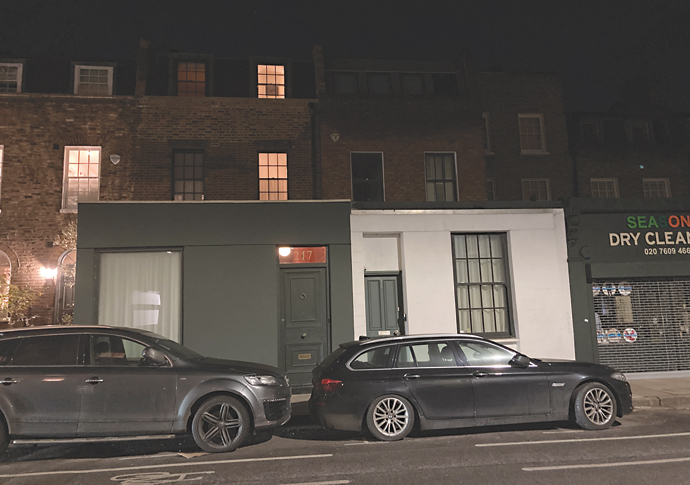The ordinary rebels of Liverpool Road
Charlotte Chambers hears a new suggestion for a plaque at the Islington home of a couple who defied laws against homosexuality
Friday, 3rd February 2023 — By Charlotte Chambers

Andrew Lumsden, right, with his partner Stephen Clissold
CANADIAN Reiss Howard and his partner British painter Len Smith were something of a rarity in 1950s Britain: two “ordinary people” who “stuck their heads above the parapet” by living as an openly gay couple “and got away with it”.
Furthermore, the pair, who had both been married to women previously, began to actively campaign for gay rights, hosting weekly meetings at their Liverpool Road home for the newly formed Homosexual Law Reform Society (HLRS).
Former Times journalist Andrew Lumsden, who spoke about the couple at an online forum for the London Metropolitan Archives in Clerkenwell on Wednesday, said: “It’s important because Len and Reiss were the first two lovers to defy the likelihood that the police would raid them – in order to try to get British law changed. They were very brave.
“They made a difference: if it hadn’t been for them the campaign to change British attitudes to LGBT people would have been less democratic. They were ‘ordinary people,’ not celebrities, who stuck their heads above the parapet and defied police in the 1950s and got away with it.”
Mr Lumsden was instrumental in starting the first national gay newspaper, Gay News, in 1972, and helped organise the first London Pride march in the same year.

The property in Liverpool Road where Len Smith and Reiss Howard lived
He called for a plaque dedicated to the couple’s “unique” involvement in the fight for gay rights to be put up in Liverpool Road, where they also ran an art studio alongside an antiques shop.
He said their weekly meetings – which began in the mid 1950s and saw author JB Priestley and his wife Jacquetta Hawkes pay regular visits, alongside the Bishops of Carlisle and Rochester – were never disturbed by the police and questioned whether it was the appearance of the clergy at the meetings that kept them away, afraid of triggering a “major scandal”.
Mr Lumsden added: “It was a uniquely brave thing for them to do because had the police been tipped off about the whereabouts of two men living together they would as a matter of course mount a raid.”
Should the men have been found in breach of the law they could have faced imprisonment or worse: Alan Turing, the wartime code-breaker, who was found guilty in 1952 of gross indecency was treated with female hormones; he killed himself two years later.
Times were changing though: the HLRS was founded in 1958 to push for movement on recommendations made a year earlier in the government’s Wolfenden Report, which included that “homosexual behaviour between consenting adults in private should no longer be a criminal offence”. It found that “homosexuality cannot legitimately be regarded as a disease, because in many cases it is the only symptom and is compatible with full mental health in other respects”.
While the act of anal sex between men had been made punishable by hanging by Henry VIII in 1533, under the Buggery Act, it took another 10 years after the Wolfenden Report for gay sex to be partially legalised. And it was not until 2001 that the legal age of consent was equalised to 16 for both gay and straight people.
Mr Lumsden, who left journalism to “live in drag in a commune,” described the fight for transgender rights – people who choose to reassign their gender – as a modern equivalent of the fight for gay rights 60 years ago.